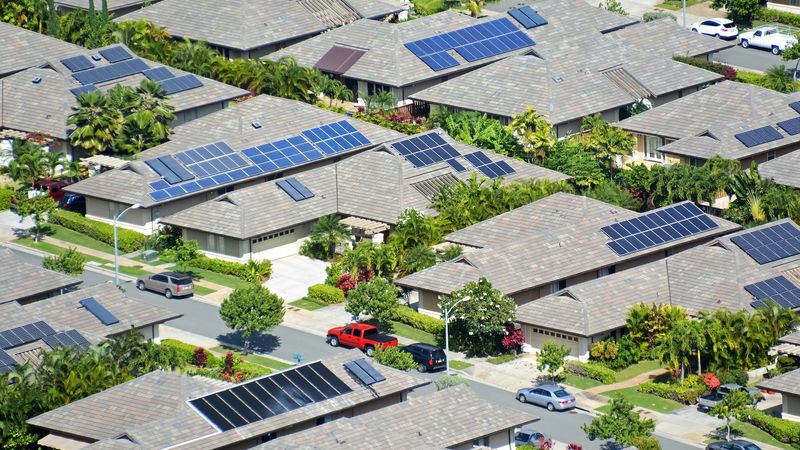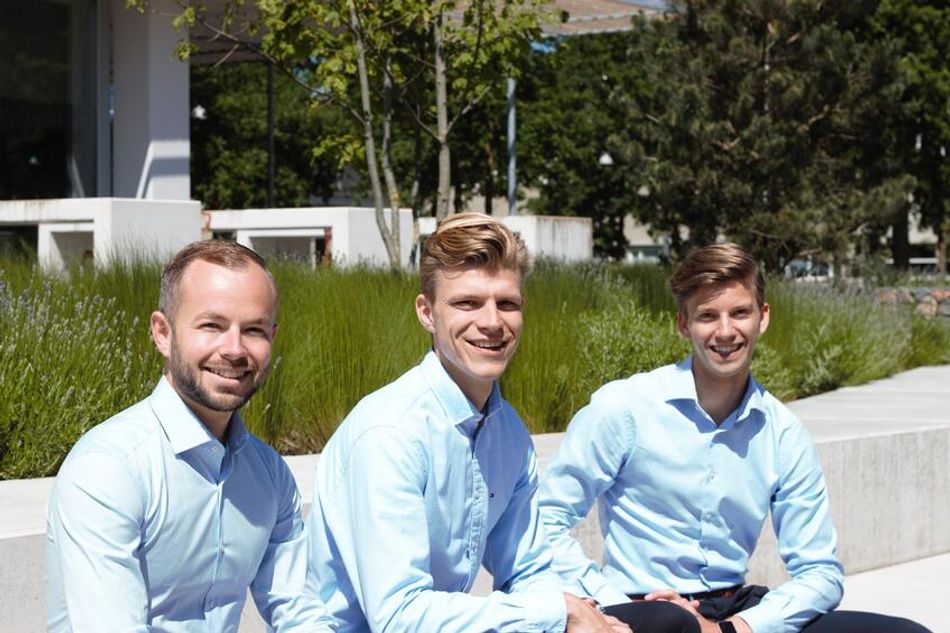Making smart use of solar and wind energy in your home
“We are still making not enough use of solar and wind energy,” says Horst Fietje, co-founder of the start-up Voltgoed, which he founded together with Stan Hoppenreijs and Jasper Verhoeve. They are working on a smart box for home heat pumps. This would enable them to make flexible use of green power.

Photo by Jeremy Bezanger on Unsplash
“We are still making not enough use of solar and wind energy,” says Horst Fietje, co-founder of the start-up Voltgoed, which he founded at the beginning of this year together with Stan Hoppenreijs and Jasper Verhoeve. They are working on a smart box for home heat pumps. This would enable them to make flexible use of green power.
According to Fietje, the solution is not only to build mass wind farms or to install solar panels everywhere. “All that energy has to go somewhere. But our electricity grid cannot cope with the supply. Then we end up with power blackouts. Energy supply and demand vary widely at times. When the wind is blowing, there is not always a demand for power. But when the sun isn’t shining, there is. Fietje recalls that in the state of California last year, there were nine power blackouts in the months of June, July and August.
Insight
“We need more flexibility in our network,” says the entrepreneur. Which is why he and his partners came up with a solution. A small box that optimizes the use of your heat pump. “By combining as many heat pumps as possible, we are jointly able to increase the share of sustainable energy in the electricity grid.” When there is a lot of sun or wind, the device activates the heat pump so that these clean energy sources do not have to be turned off. ” This way, we prevent surpluses of sustainable energy from being lost. And all this without you noticing a thing.”
There are various ways to make your home more sustainable: double glazing, cavity wall insulation, a heat pump. “But what are the advantages?” The smart box currently primarily displays data on power consumption, it does not yet control heat pumps. “You mainly get insight into the energy consumption of a home. We aim to demonstrate the potential of smart control of heat pumps.”
Mini computer
Voltgoed can currently read the meters of ten households in the Brainport region. These are houses with a heat pump and sometimes also equipped with solar panels. The entrepreneurs want to use this to validate their solution. “We can filter out from that data when the heat pump is switched on. Then we can see if we can regulate it more intelligently. We can also see how much that more efficient use will yield. It’s actually a mini computer with a communication system that is also connected to the internet.” Fietje wants to use the information from the test to fine-tune their idea and perhaps expand it to other applications.
A more efficient use of the heat pump already saves households money, says Fietje. “That heat pump heats water. The installer sets the temperature too high by default, because the installer doesn’t want to keep coming back. But that is not efficient by any means. Consequently, a lot of heat pumps use too much energy.”
Predictive maintenance is also possible thanks to the link with the internet. “You can then see when it’s time to call for an installer. Because having an installer come by every year with a 80 to 100 euros call-out charge is not practical either. A heat pump is expensive. But people still do not know much about it. With our platform, we want to give people more insight and confidence so they know that their heat pump is working well and is economical.”
The team
For Fietje, it’s not about the product, but about the team that makes it. The three met during their bachelor studies at the Eindhoven University of Technology (TU/e). Fietje and Verhoeve studied Electrical Engineering and Hoppenreijs Energy Technology. Verhoeve also worked for two years on the software and hardware of the Solar Team Eindhoven’ s solar car. “We complement each other tremendously well,” he says. Fietje with his drive for entrepreneurship, Hoppenreijs with a passion for data and Verhoeve as a technical powerhouse.
They want to contribute to the energy transition and make an impact in the process. Early this year, they decided to go for it and develop a scalable and affordable product. The market for heat pumps is growing enormously, says Fietje. So they see a lot of potential in that market. Since January, the three entrepreneurs have made great strides. They quickly improved their prototype and found the right people to help them further. They also won prizes: the Enpuls Challenge of Enexis, ‘the ideation phase‘ during the TU/e Contest and the public prize at the 5G Hub Innovation Challenge.
“If we are going to take part in something, then we are going to go for the win,” says Fietje. It is important to him that everyone is on the same page. That is why they often have an evaluation that they combine with something fun: a chat over a beer or a barbecue to share ideas. These ‘competitions’ also yield more than just a prize. “You are also doing it for the network. And thanks to the 5G Hub Challenge, we were able to accelerate our plans.”
Cheeky
“What sets us apart from many start-ups is that we are not afraid to go up to people and ask for help. For example, I just sent a message via LinkedIn to the CEO of a large grid operator. That we would like to talk. Some might say that’s a bit cheeky, but I think it’s important to get in contact with people who are able to assess your idea, give you tips and help you further. You can’t lose anything, it’s free information.”
Fietje always takes that information to heart. “I listen and as a team we decide what we can do with it. We are not so in love with our idea that we want to cling to it at all costs.” That’s why the team has a lot of conversations with heat pump manufacturers, energy suppliers, installers, but also users. A total of around 150 different interviews.
Everyone is welcome to contribute their ideas, says Fietje. “People with access to a neighbourhood and who want to participate in a test, for instance. Neighbourhood organisations or municipalities.” For example, residents of an Eindhoven new housing estate contacted the company. “A total of 13 homes, all with heat pumps. If we could do a pilot with them once it was all ready they asked us. The residents came to us of their own accord. That’s pretty cool.”
